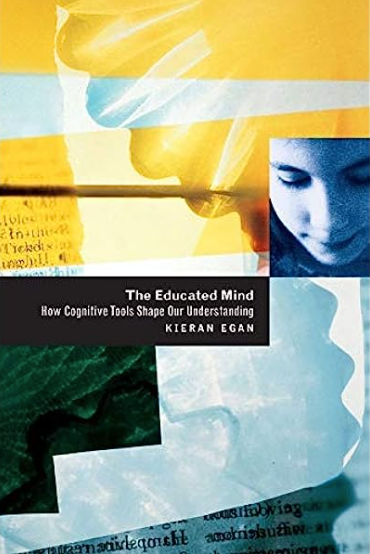One of the readers of Scott Alexander’s Astral Codex Ten has contributed a review of The Educated Mind: How Cognitive Tools Shape Our Understanding by Kieran Egan. This is one of a few dozen anonymous reviews that Scott publishes every year with the readers voting for the best review and the names of the contributors withheld until after the voting is finished:
I got a master’s degree in something like educational theory from a program whose name looked good on paper, and when I was there, one of the things that I could never quite make sense of was my professors’ and fellow students’ rock-solid assumption that schools are basically doing a good job.
Egan disagrees. He opens his book by laying that out:
Education is one of the greatest consumers of public money in the Western world, and it employs a larger workforce than almost any other social agency.
The goals of the education system – to enhance the competitiveness of nations and the self-fulfillment of citizens – are supposed to justify the immense investment of money and energy.
School – that business of sitting at a desk among thirty or so others, being talked at, mostly boringly, and doing exercises, tests, and worksheets, mostly boring, for years and years and years – is the instrument designed to deliver these expensive benefits.
Despite, or because, the vast expenditures of money and energy, finding anyone inside or outside the education system who is content with its performance is difficult.
Q: Oh, can it really be that bad?
Imagine a group of 100 American adults, chosen at random. They’ve sat through years of science lessons, so you decide to ask them some basic questions. What will they know?
Bryan Caplan, in his book Against Education, cites surveys of what Americans know about basic scientific concepts. Here’s what they find:
- of the hundred adults, 76 know that the center of the Earth is hot (this is good!)
- only 54 know that the Earth goes around the Sun
- only 50 know that not all radioactivity is man-made
- only 29 know that ordinary (as opposed to GMO) tomatoes have genes
Q: Well, those are facts, not understanding — and that’s just looking at American adults in general! Surely good schools are doing a better job educating than that?
Caplan cites a famous study by the educational psychologist Howard Gardner:
Researchers at Johns Hopkins, M.I.T., and other well-regarded universities have documented that students who receive honor grades in college-level physics courses are frequently unable to solve basic problems and questions encountered in a form slightly different from that on which they have been formally instructed and tested.
Q: Okay, but schools teach reading, writing, and math … right?
Basic literacy and numeracy: yes. Adult-level: no.
If you gave someone two editorials that clashed over interpreting economic evidence, what percent of American adults could compare the editorials? One U.S. Department of Education study that Caplan cites finds: just 13%.
And while 78% could “calculate the cost of a sandwich and a salad, using prices from a menu”, only 13% could “calculate an employee’s share of health insurance costs for a year, using a table that shows how the employee’s monthly cost varies with income and family size”.
Q: I’m afraid to ask about reasoning abilities.
Caplan quotes from a study that looked into how well college students were at applying academic learning to everyday life. The authors write:
The results were shocking. Of the several hundred students tested … the overwhelming majority of responses received a score of 0. Fewer than 1% obtained the score of 2 that corresponded to a “good scientific response”.
America isn’t so much of an outlier; numbers across the rest of the world are comparable. The 4.7 trillion-dollar question is why.




